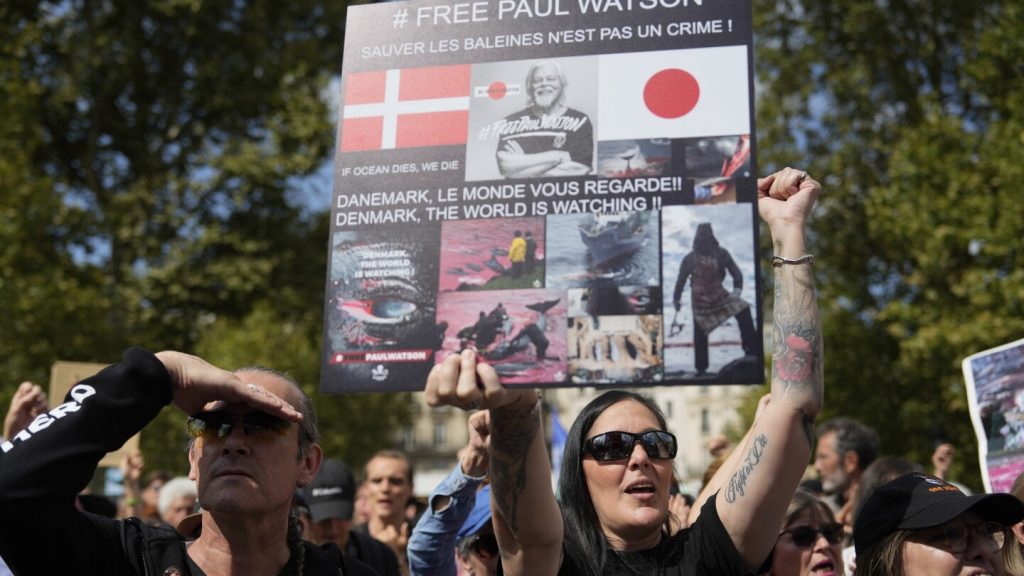Sea Shepherd founder Paul Watson, known for his fight against Japanese whaling, has requested political asylum in France to avoid extradition to Japan, where he could face up to 15 years in prison. The request was made in a letter delivered to President Emmanuel Macron by Sea Shepherd France. Macron has previously expressed support for Watson and highlighted the importance of his case for environmental advocacy and human rights. Watson, who is currently living in France with his family, is described as “down” and “isolated” but “resilient” by Sea Shepherd France’s president, Lamya Essemlali.
Critics of Watson’s arrest in Greenland, where he was detained following a Japanese request to Interpol, claim it is politically motivated due to Japan’s controversial whaling practices. Despite being internationally banned under a 1986 treaty, Japan considers whaling a cultural heritage. Watson’s confrontational tactics against Japanese whaling operations in the Antarctic have made him a prominent figure in the fight against whaling. His arrest in Greenland occurred while his ship was docked for refueling on its way to intercept a Japanese whaling vessel, and now Danish authorities are reviewing Japan’s extradition request.
Japan had previously issued a Red Notice through Interpol over a decade ago, which is a request for cooperation between member states to locate and detain individuals pending extradition, but it is not an international arrest warrant. Tamalet, a lawyer associated with Sea Shepherd France, noted that in the past, international authorities paid little attention to Japan’s requests, allowing Watson to travel freely. However, the situation has changed now, leading to his detention in Greenland and potential extradition to Japan. The call for political asylum in France is seen as symbolic and aimed at securing Watson’s release.
Watson’s close ties to France, as well as the country’s significant marine territory, play a crucial role in his decision to seek political asylum there. His work in ocean conservation aligns with France’s marine conservation efforts, making it a favorable location for him and his family. The letter delivered to Macron emphasizes Watson’s connection to France and the importance of his ongoing fight against environmental crimes. The support shown by Macron in the past suggests that France may be a more welcoming environment for Watson to continue his advocacy work without fear of extradition.
The extradition of Paul Watson to Japan would not only impact his personal freedom but also his ability to continue his environmental activism. Given the significant support he has received from activists and environmentalists worldwide, the case has garnered international attention. The fight against Japanese whaling practices remains a contentious issue, with Watson’s arrest seen as a potential setback for those advocating for marine conservation and animal rights. The outcome of his plea for political asylum in France will have broader implications for the future of environmental activism and the protection of marine life.
As Watson remains in detention in Greenland, the uncertainty surrounding his legal status and potential extradition to Japan raises concerns among his supporters and fellow activists. The impact of his work with Sea Shepherd in disrupting illegal whaling operations and raising awareness about environmental crimes cannot be understated. The decision by French authorities on his request for political asylum will be closely watched by those who stand in solidarity with Watson and his commitment to protecting the oceans and marine wildlife. The outcome of this case will undoubtedly shape the future of marine conservation efforts and the fight against illegal whaling practices worldwide.


